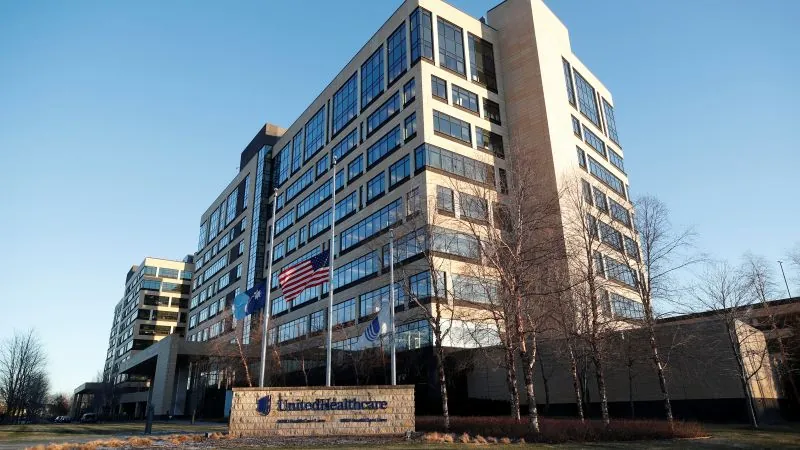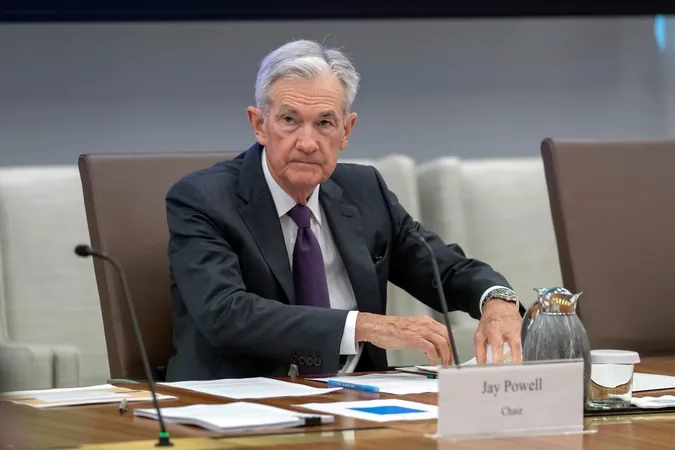
UnitedHealth Group CEO Urges Major Overhaul as Public Outcry Grows Amidst Tragedy
2025-01-16
Author: Olivia
In a recent earnings call, UnitedHealth Group reported disappointing fourth-quarter revenue, which fell short of expectations, despite an increase in profit. The announcement comes in the wake of the tragic murder of Brian Thompson, CEO of their insurance division, UnitedHealthcare, which has ignited fierce public criticism concerning the company’s handling of patient care and insurance practices.
UnitedHealth Group's CEO, Andrew Witty, expressed condolences and defended the company’s commitment to its consumers during this difficult time. He emphasized the urgent need for change within the US healthcare system, stating, “It needs to be less confusing, less complex, and less costly.” This sentiment resonates profoundly as the complexities of healthcare have left many individuals frustrated and bewildered.
In detailing the company’s performance, Witty reported a nearly 7% increase in revenue, reaching $100.8 billion for the quarter, while quarterly earnings showed a modest rise of less than 2% to $5.5 billion. Notably, adjusted earnings per share came in at $6.81, surpassing analyst expectations, although the overall revenue performance fell short of the projected $101.6 billion.
Witty pointed fingers at pharmaceutical companies and hospitals for the exorbitant costs plaguing the industry. He highlighted glaring disparities, such as the cost of essential GLP-1 medications, which can be up to ten times more expensive in the US compared to Europe. “Fundamentally, healthcare costs more in the US because the price of a single procedure, visit, or prescription is higher here than it is in other countries,” he stated, urging for a deep examination of these economic structures.
As user complaints regarding insurance claims burgeoned, Witty acknowledged that only a minuscule fraction—less than half of one percent—of claims are outright rejected for being unsafe or ineffective. However, he admitted that many claims experience delays attributable to administrative errors and misinformation. Advocating for technological solutions, he pointed to the potential of artificial intelligence in streamlining insurance processes—a point of contention that raises concerns about potential treatment denials.
Adding to the challenges, Witty outlined factors affecting UnitedHealth in 2024, such as impending Medicare rate cuts from the Biden administration, a reduction in Medicaid enrollment, and a significant cyberattack that impacted their Change Healthcare unit.
The shock of Thompson's death has galvanized calls for reform. Recently, a coalition of institutional investors urged UnitedHealth's board to assess how the company’s practices may adversely affect patient outcomes, particularly in terms of delayed or denied treatment. “The tragic murder of UNH’s Brian Thompson made evident that public outrage over the exorbitant costs and restricted access to healthcare has reached a dangerous level in our country,” remarked Timnit Ghermay, a member of the Northwest Coalition for Responsible Investment.
In solidarity with ongoing reform efforts, a planned demonstration involving patients and advocates is set to take place outside the New York Stock Exchange. The intent is to spotlight the dire consequences of denial of care from insurance providers, which can result in delayed or foregone treatments with potentially life-threatening consequences.
In light of these events and criticisms, Witty acknowledged that the healthcare system is far from perfect, describing it as a “patchwork built over decades.” He expressed a desire for transparency and a commitment to addressing the frustrations of those navigating the complexities of healthcare, stating “We know the health system does not work as well as it should.”
As scrutiny of UnitedHealth and the broader health insurance industry intensifies, the future may hold significant changes aimed at making healthcare more equitable and accessible to all Americans. The coming months could be pivotal for reform, compelling UnitedHealth Group to reassess its practices and policies while answering the growing demands for transparency and care that the public is actively voicing.









 Brasil (PT)
Brasil (PT)
 Canada (EN)
Canada (EN)
 Chile (ES)
Chile (ES)
 Česko (CS)
Česko (CS)
 대한민국 (KO)
대한민국 (KO)
 España (ES)
España (ES)
 France (FR)
France (FR)
 Hong Kong (EN)
Hong Kong (EN)
 Italia (IT)
Italia (IT)
 日本 (JA)
日本 (JA)
 Magyarország (HU)
Magyarország (HU)
 Norge (NO)
Norge (NO)
 Polska (PL)
Polska (PL)
 Schweiz (DE)
Schweiz (DE)
 Singapore (EN)
Singapore (EN)
 Sverige (SV)
Sverige (SV)
 Suomi (FI)
Suomi (FI)
 Türkiye (TR)
Türkiye (TR)
 الإمارات العربية المتحدة (AR)
الإمارات العربية المتحدة (AR)